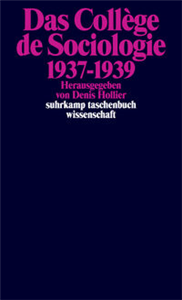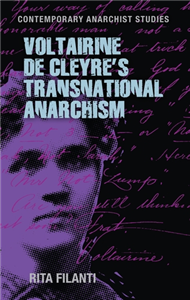Your Search Results
-
Editions Larousse SAS
Major French publisher of books on cooking, crafts and hobbies, gardening, health and well-being, gardening nature and animals, art and history, essays as well as children's books and games for all ages. Around 600 new titles each year. Since 1852.
View Rights Portal
-
Promoted ContentOctober 2016
333 Fragen für die lösungsorientierte Kommunikation bei Veränderungsprozessen
Ein Fragenfächer für Therapeuten, Coaches und Manager
by de Bruin, Lara
-
Promoted ContentPsychiatry
Change in 333 Questions
Solution Focused Communication for Therapists, Coaches, and Managers
by Lara de Bruin
Solution based communication is a positive and very effective approach in therapy sessions. By means of specific questions, the strengths of the client are emphasized. This fan brings together the most important questions, ordered by subject (e.g. getting to know the client, goals, exceptions) and by type of conversation partner (clients who do not want to co-operate, who are in conflict, or who currently experience a crisis). All relevant questions close are at hand with this extremely practical tool!
-
 Trusted Partner
Medicine
Trusted Partner
MedicineSolution-Focused Treatment and Coaching
by Lara de Bruin
These fans contain questions that can be used in a variety of different setting and offer a solution-focused perspective. The user is guided through the fan by topics. The front of the cards provide guidance to help construct a conversation, while the back of the cards focus on specific situations or clients. Target Group: therapists, coaches, managers
-
 Trusted Partner
Medicine
Trusted Partner
MedicineOplossingsgericht organiseren en veranderen
by Lara de Bruin
These fans contain questions that can be used in a variety of different setting and offer a solution-focused perspective. The user is guided through the fan by topics. The front of the cards provide guidance to help construct a conversation, while the back of the cards focus on specific situations or clients. Target Group: therapists, coaches and managers
-
 Trusted Partner
1987
Trusted Partner
1987Der spanische Bürgerkrieg
Eine Bestandsaufnahme fünfzig Jahre danach
by Manuel T de Lara, Julio Aróstegui, Angel Vinas, Gabriel Cardona, Joseph M Bricall
-
 Trusted Partner
August 2001
Trusted Partner
August 2001Lara Croft - Modell, Medium, Cyberheldin
Das virtuelle Geschlecht und seine metaphysischen Tücken
by Astrid Deuber-Mankowsky, EIDOS Interactive Germany, Agentur TBWA Frankfurt
Lara Croft, die Heldin des Computerspiels »Tomb Raider«, ist in kurzer Zeit zu einem »Cultural icon« geworden. Sie ist Traum-Frau und weibliche Heldin, Pin-up-Girl und »Grrl« in einem. Damit bedient sie männliche ebenso wie weibliche Ermächtigungsphantasien. Doch statt die hierarchische Geschlechterordnung zu unterlaufen, befördert der Kult um Lara Croft einen Prozeß, der als »Medialisierung« der Körper beschrieben werden kann und der die dualistische Geschlechtermetaphysik auf einem höheren Level auferstehen läßt. Welche Bedeutungsverschiebung durchläuft der Begriff des Geschlechtlichen im Zuge seiner Virtualisierung? Die Autorin nähert sich dieser Frage entlang einer Analyse der Entstehungs- und der Wirkungsgeschichte des Phänomens Lara Croft.
-
 Trusted Partner
The ArtsOctober 2015
Trusted Partner
The ArtsOctober 2015Film light
Meaning and emotion
by Lara Thompson
In one of the first monographs of its kind to focus on the aesthetic and emotional impact of lighting in cinema, Lara Thompson looks at the way light informs the cinematic experience, from constructing star identities, sculpting natural light and creating imaginary worlds, to the seductive power of darkness, fading representations of the past and arresting twilight encounters. This groundbreaking and accessible introductory study offers a unique insight into the way illumination has transcended its diffuse functional boundaries and been elevated to a position of narrative and emotional importance, transforming it from an unobtrusive element of film style to an expressive and essential component. It includes analyses of over fifty renowned international films, discussed in inventive and illuminating combinations, from cinema's earliest moments to its most recent digital manifestations, and is essential reading for all those who want to understand what film light means and how it makes us feel. ;
-
 Trusted Partner
July 2017
Trusted Partner
July 2017Un chemin de tables (AT)
by Maylis de Kerangal, Andrea Spingler
Maylis de Kerangal, geboren 1967, veröffentlichte im Jahre 2000 ihren ersten Roman. Ihre Romane und Erzählungen wurden vielfach ausgezeichnet. Andrea Spingler, geboren 1949 in Stuttgart, ist seit 1980 als freie Übersetzerin tätig. Sie hat unter anderem Werke von Marguerite Duras, Alain Robbe-Grillet, Patrick Modiano, Jean-Paul Sartre, André Gide ins Deutsche übertragen. 2007 wurde sie mit dem Eugen-Helmlé-Preis für herausragende deutsch-französische Übersetzungen ausgezeichnet, 2012 mit dem Prix lémanique de la traduction. Sie lebt in Oldenburg und Südfrankreich.
-
 Trusted Partner
August 2026
Trusted Partner
August 2026Fleur de Lavande (Band 3) - Wie du träumst
Mit edlem Farbschnitt und wunderschöner Charakterpostkarte - Nur in der 1. Auflage solange der Vorrat reicht!
by Gabriella Santos de Lima
Margaux will sich nie wieder verlieben, denn das erste Mal endete in einem Desaster. Vier Jahre sind vergangen, doch sie denkt noch immer an Oscar. Oscar, diesen furchtbar sensiblen, einfühlsamen, britischen Jungen, mit dem sie einen ganzen Sommer verbracht hat. Er war gerade achtzehn, verrückt nach seiner Musik – und nach ihr. Heute ist er Sänger einer erfolgreichen Indie-Band, die Maggie natürlich nicht auf Social Media verfolgt. Als das Duftimperium ihrer Familie sein Jubiläum in Südfrankreich feiert, muss Maggie an den Ort zurückkehren, an dem sie zuletzt mit sechzehn war. Den Ort, an den sich jetzt auch Oscar zurückzieht, um an neuen Liedern zu schreiben, die irgendwie immer noch alle nach Maggie klingen. Im abschließenden Band ihrer New-Adult-Reihe rund um die französische Duftdynastie Fleur de Lavande schreibt SPIEGEL -Bestsellerautorin Gabriella Santos de Lima über eine zweite Chance für die erste Liebe – Second Chance zwischen Erinnerungen, Mental Health, Musik und Träumen. Mit edlem Farbschnitt und exklusiver Charakterpostkarte in der Erstauflage - Nur solange der Vorrat reicht!
-
 Trusted Partner
August 2012
Trusted Partner
August 2012Das Collège de Sociologie
1937–1939
by Denis Hollier, Horst Brühmann, Irene Albers, Stephan Moebius
Kaum eine intellektuelle Gruppierung des 20. Jahrhunderts hat eine vergleichbare Wirkung und Faszinationskraft entfaltet wie das Collège de sociologie, das 1937 von Georges Bataille zusammen mit Roger Caillois und Michel Leiris gegründet wurde. Den Mitgliedern des Collège geht es im Anschluß an die Religionssoziologie von Durkheim und Mauss um die Etablierung einer Soziologie des Sakralen, das aus seinen religionswissenschaftlichen und ethnologischen Bezügen gelöst und für eine allgemeine Wissenschaft moderner Gesellschaften fruchtbar gemacht werden soll. Einer sich rapide individualisierenden Gesellschaft, deren atomistischer und anomischer Zustand sie besonders anfällig für faschistische Propaganda macht, setzen die Collègiens die Schaffung frei wählbarer Gemeinschaften entgegen, die durch Erfahrungen der kollektiven Ekstase, von Festen und Mythen zusammengehalten werden. Die reich kommentierte Edition von Denis Hollier hat den Diskussionszusammenhang des Collège de sociologie erstmals erschlossen und zeitlich nachvollziehbar gemacht. Zahlreiche Texte sind nur in dieser Ausgabe zugänglich; nun liegt sie erstmals in vollständiger deutscher Übersetzung vor. Editorisch bearbeitet und mit einem Nachwort von Irene Albers und Stephan Moebius.
-
 Trusted Partner
August 2025
Trusted Partner
August 2025Fleur de Lavande (Band 1) - Wie du liebst
Schriftstellerin x Sportler in dieser Best Friend’s Brother Romance - Der SPIEGEL-Bestseller von Gabriella Santos des Lima mit Farbschnitt in der 1. Auflage
by Gabriella Santos de Lima
„Man konnte mit Viola mitfühlen & hat sich wieder einmal verstanden gefühlt. So wie Gabi schreibt können nur wenige schreiben, wenn überhaupt jemand, denn ihr Schreibstil ist einzigartig und etwas ganz Besonderes.“ – meri.liest „Ich habe es wieder zu 100% gefühlt und wirklich jedes Wort geliebt. Wie kann man eigentlich nur so wunderschön und einzigartig schreiben? Jede Zeile liest sich hier wie ein Gedicht und erweckt so viele Emotionen. Je mehr Worte Gabriela hat, desto weniger habe ich.“ – reading_with_anita „Gabriella Santos de Lima hat mit dem ersten Teil von 'Fleur De Lavande - Wie du liebst' einen Reihenstart geschaffen, der mich noch einige Zeit begleiten wird. Viola und Luc waren beide Figuren, die mir ziemlich nahe gegangen sind und in denen ich mich wiederfinden konnte. Dieses Buch war vor allem ein Gefühl der Verbundenheit, das Wahrnehmen der Zweifel von einem selbst und anderen.“ – zwischenzeilenundgefuehlen „Dieses Buch hat mir wirklich alles gegeben. Ich habe mich verstanden gefühlt. Verstanden im „Sich manchmal zu Viel zu fühlen“. Verstanden im Dasein als Mittzwanzigerin. Und ich habe mich nicht nur verstanden, sondern auch gesehen gefühlt. Gabriella hat sich meiner Meinung mal wieder absolut selbst übertroffen!“ – zwischenbuchseitenundrealitaet „Fleur de Lavande“ fühlt sich an wie ein warmer Spätsommertag – voller Lavendelduft, echter Emotionen und besonderer Momente, die tief unter die Haut gehen. Gabriella schafft es erneut, mit ihrem einzigartigen Schreibstil nicht nur Geschichten zu erzählen, sondern eine Vielzahl von Gefühlen zu vermitteln. Ihre Worte berühren mich sehr und haben mich gleichzeitig so in ihren Bann gezogen, dass ich das Buch innerhalb von zwei Tagen gelesen habe.“ – dreimalgelesen
-
 Trusted Partner
Humanities & Social SciencesMay 2026
Trusted Partner
Humanities & Social SciencesMay 2026Voltairine de Cleyre’s transnational anarchism
by Rita Filanti
Despite a growing interest in her life and work, Voltairine de Cleyre's contribution to anarchist studies, women studies, and American literature is still mostly unacknowledged. Described by Emma Goldman as 'the most gifted and brilliant anarchist woman America ever produced', de Cleyre authored poems, prose sketches, lectures and translations which radiate with her vision of the world, meticulous use of language, and iconoclastic vigor. Drawing on her copious correspondence with family members, friends and comrades, this monograph provides novel insight into the most significant events of her life while investigating the aesthetic concern characterizing all of her writing. Constantly shifting across languages, she established cosmopolitan networks within immigrant communities at home and beyond the ocean, always believing, until her untimely death, in universal solidarity and the ultimate non-existence of national, ethnic and linguistic barriers.
-
 Trusted Partner
January 1995
Trusted Partner
January 1995La compétence de l'Aréopage en matière de procès publics
Des origines de la polis athénienne à la conquête romaine de la Grèce (vers 700-146 avant J.-C.)
by de Bruyn, Odile
-
 Trusted Partner
Humanities & Social SciencesMarch 2024
Trusted Partner
Humanities & Social SciencesMarch 2024How to be multiple
The philosophy of twins
by Helena de Bres, Julia de Bres
In How to be multiple, Helena de Bres - a twin herself - argues that twinhood is a unique lens for examining our place in the world and how we relate to other people. The way we think about twins offers remarkable insights into some of the deepest questions of our existence, from what is a person? to how should we treat one another? Deftly weaving together literary and cultural history, philosophical enquiry and personal experience, de Bres examines such thorny issues as binary thinking, objectification, romantic love and friendship, revealing the limits of our individualistic perspectives. In this illuminating, entertaining book, wittily illustrated by her twin sister, de Bres ultimately suggests that to consider twinhood is to imagine the possibility of a more interconnected, capacious human future.
-
 Trusted Partner
Trusted Partner
-
 Trusted Partner
Humanities & Social SciencesJuly 2025
Trusted Partner
Humanities & Social SciencesJuly 2025Cross-border intimacies
Affect and emotions in marriage migration
by Lara Momesso
Since the early 1990s, economic exchanges between China and Taiwan have paved the way to migration across a previously closed border and to social and cultural interactions between the two populations. Despite these broader changes, the unresolved issue of Taiwan sovereignty has tainted not only the relations between the two governments but also the everyday life of those who move across the Taiwan Strait. In this politicised environment, intimate and affective practices linked to cross-border marriage and family formation are never just private. Instead, they are deeply entangled with the emotional and affective processes generated at the macro and meso level of political and social life and revolving around national interests. Tracing the intimate, emotional and affective practices linked to family creation, identity formation and integration with the local and national communities, this ethnographic study offers a subjective, dynamic, and complex picture of what it means to be a mainland spouse in Taiwan.
-
 Trusted Partner
February 2012
Trusted Partner
February 2012Test d'aptitudes pour les études de médecine II
Adaptation francaise de la version originale II
by Herausgegeben von Centre pour le développement de tests et le diagnostic, Université de Fribourg, Suisse, en collaboration avec ITB Consulting
-
 Trusted Partner
January 1995
Trusted Partner
January 1995La notion de nature chez Leibniz
Colloque organisé par le Département de Philosophie de l’Université de Provence (Aix-en-Provence), le CNRS (Paris), et la G. W. Leibniz-Gesellschaft (Hannover) Aix-En-Provence, 13-15 Octobre 1993
by Herausgegeben von de Gaudemar, Martine
-
 Trusted Partner
Health & Personal Development
Trusted Partner
Health & Personal DevelopmentMio, the Brown Bear
by Isabell Müller, Hannah Schmiedel, Noah Willmann, Simon Zerth
“Whenever I see my uncle, he gets really close to me”, Mio the brown bear tells his friend Rami the raven. At Tara’s (Mio’s mom’s) birthday party, he talks to Rami about the bad feeling in his bear belly whenever he sees his uncle Oskar. From Rami, Mio learns to listen to his gut instinct. The next morning, when the bears go fishing together, Oskar touches Mio in a way that he doesn’t want. Mio summons all his courage and fights off his uncle. The book makes children aware of the subject of sexualized violence. It encourages those affected to set boundaries and to talk to people they trust. Moreover, the book provides practical tasks and exercises and offers important information on the topic for parents, relatives and therapists. For:• children of elementary school age(between 6 and 12) who haveexperienced sexualized violence• their relatives and acquaintances• therapists
-
 Trusted Partner
1996
Trusted Partner
1996Le test d'aptitudes pour les études de médecine
Adaptation française de la version originale dans son intégralité
by Herausgegeben von Centre pour le développement de tests et le diagnostic, Université de Fribourg, Suisse, in Zus.-Arb. mit d. Institut f. Test- u. Begabungsforschung, Bonn, Deutschland

























